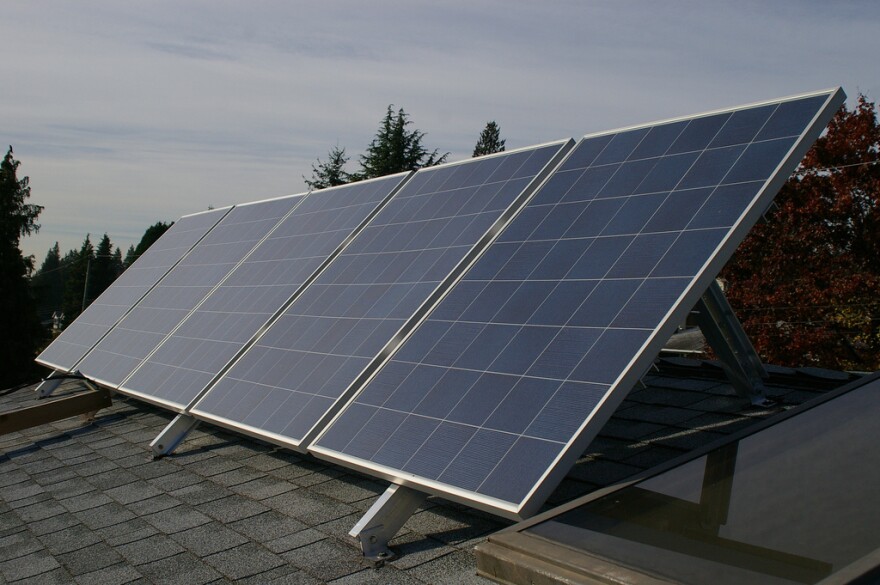Recently Eversource Energy, formerly known as PSNH, announced it would sell off its power plants. That would make New Hampshire’s electricity suppliers separate from its electricity producers - at least for a while. A new bill in front of the State House would make it easier for electric utilities to own what are called “distributed energy resources,” which refers primarily to solar power.
This may sound arcane at first, but the debate on this bill and ones like it in other states could help shape the direction of solar energy in the United States.
To explain, we turn to David Brooks, who writes the weekly Granite Geek science column for the Nashua Telegraph and GraniteGeek.org.
Why would it matter whether or not electric companies could own and generate power from solar?
The underlying story is that the price of solar panels, and the electricity created from solar power, has just been falling through the floor. There are places now where it's as cheap or even cheaper than traditional coal-fired or even, to a certain extent, natural gas-fired power plants. That's not the case in New Hampshire yet, but it's getting closer.
There's a lot more solar panels being put up around the country and around the world, to the point where there are some people saying it's posing a threat to utilities' business models. Utilities are government protected entities that were created because they do things we guarantee want to have happening. Electricity has long been a government utility, and utilities have long depended on building a small number of large power plants and then lots of wires to carry the electricity to everybody. If there's enough solar power out there scattered around, people are going to stop buying quite so much power from them, and all of a sudden their power plants are not making quite enough money to cover the costs. It's potentially a problem.
What exactly would this bill do about allowing utilities to participate the solar market?
Utilities are already allowed to own solar power. They do almost none of it - the flipside of being a government-protected utility is you have to get the government to give you permission to do things, and the government has certain rules, like you can't do it if it's going to raise rates too much. Up to now, the way the regulators at the Public Utilities Commission have looked at this under the rules is to basically say no most of the time.
This new bill would change that - the wording is kind of squishy, and I'm not a political reporter - basically it would change the wording so there is a "rebuttable presumption that ownership in the investment in distributed renewable energy is in the public interest." It would kind of set up a presumption that it's probably a good idea, and you'd have to prove that it isn't, instead of the other way around. It would be much more likely to make it possible.
So why would anybody oppose this? There's actually at least two groups - and they're both against the idea of allowing utilities to own solar power because they think utilities want to do it just so they can kill it - control it and squeeze it and make it so that independent solar providers, who are currently the only ones who can do it, so they'll go out of business and then the utilities don't have to worry about it. That's their concern. The utilities, of course, say no, this is part of the package that needs to be created to provide electricity in the modern world.
For New Hampshire, part of the ironic thing is that we don't have very much solar power at all, compared to Massachusetts or Vermont. Vermont has eight times the amount of solar installed per capita as New Hampshire does. That's almost entirely because of government support. Obviously the weather isn't any better in Vermont than it is here. There's a question of why do you want to do this if we don't even have any solar, and one answer is, well, part of the reason we don't have solar is because the utilities can't get into it. If they can get into it, maybe we'll have more solar. Part of the other answer is, well, utilities just want to kill it off before it becomes any kind of a threat.
It's not straightforward, and it's all, as I say, policy and politics more than technology.







